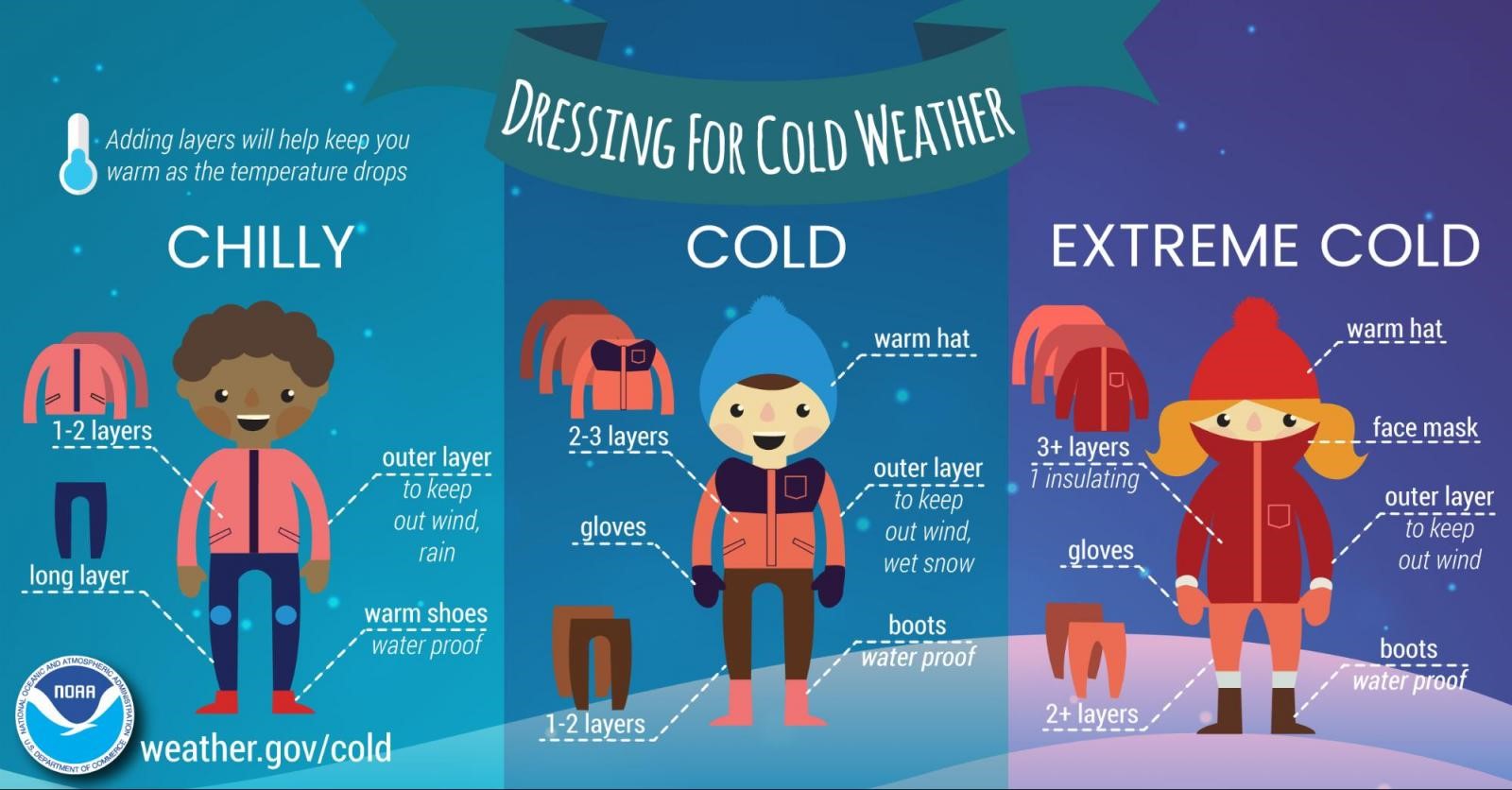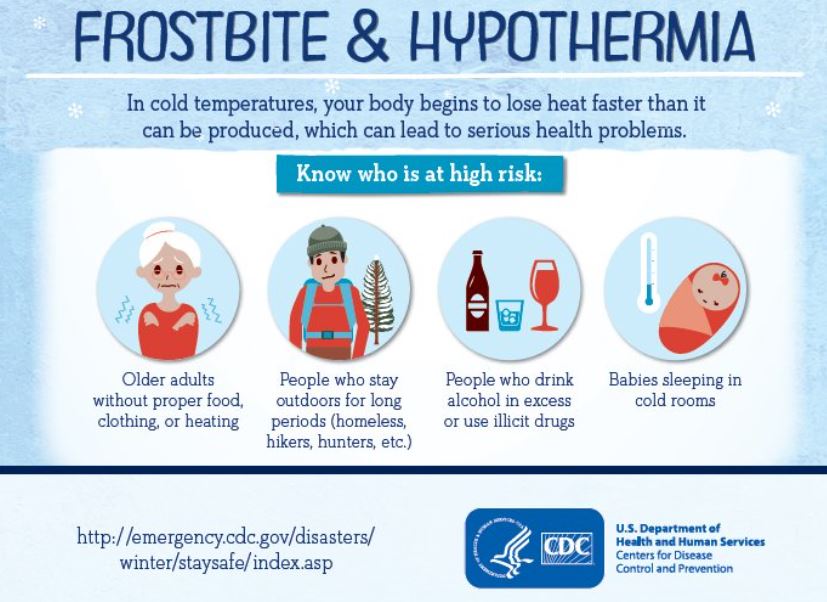MedStar crews have treated 5 patients for cold-weather-related illnesses over the past 2 days. 4 were serious enough to require ambulance transport to area hospitals.
We have also treated 5 patients for potential carbon monoxide poisoning.
We have implemented our cold weather response protocol 3 times over the past 3 days due to the ‘real feel’ temperature dipping below 20 degrees. Under this protocol, response priorities are upgraded to patients in an outdoor area, unprotected from the cold.
As the cold weather continues, we encourage area residents to protect themselves against serious health problems that can result from exposure to the cold by following these guidelines:
Lower Your Risk of Frostbite and Hypothermia
When exposed to cold temperatures, your body begins to lose heat faster than it can be produced. Follow the advice below to avoid cold-weather health problems such as frostbite and hypothermia:
- Wear cold weather appropriate clothing such as gloves/mittens, hats, scarves, and snow boots.
- Dress in several layers of loose-fitting clothing and cover your face and mouth if possible.
- Be aware of the wind chill factor. Wind can cause body-heat loss.
- Stay dry, and if you become wet, remove wet clothing immediately.
- Limit your time outdoors.
- Do not ignore shivering. It’s an important first sign that the body is losing heat. Persistent shivering is a signal to return indoors.
Signs and Symptoms of Hypothermia
Hypothermia symptoms for adults include:
- Shivering, which may stop as hypothermia progresses (shivering is actually a good sign that a person’s heat regulation systems are still active.)
- Slow, shallow breathing
- Confusion and memory loss
- Drowsiness or exhaustion
- Slurred or mumbled speech
- Loss of coordination, fumbling hands, stumbling steps
- A slow, weak pulse
- In severe hypothermia, a person may be unconscious without obvious signs of breathing or a pulse
Avoid Exertion
Cold weather puts an extra strain on the heart. If you have heart disease or high blood pressure, follow your doctor’s advice about performing other hard work in the cold. Otherwise, if you have to do heavy outdoor chores dress warmly and work slowly. Remember, your body is already working hard just to stay warm, so don’t overdo it.
Reduce Risk of Cold Temperature Injuries
People are at risk for developing health problems from working in cold environments.
- Ensure that clothing and boots have adequate insulation.
- Dress in layers to help keep in body heat.
- Take frequent breaks out of the cold.
Avoid Carbon Monoxide
- Carbon monoxide is an odorless, colorless gas that is poisonous to breathe. Operate all gasoline-powered devices, such as gas powered heaters outdoors and never bring them indoors. Also be careful when using other alternate heating sources such as stoves or grills. This will help to ensure your safety from carbon monoxide poisoning.
Check Often on Elderly or Chronically Ill Loved Ones
The elderly or people with chronic illnesses may be at risk for Hypothermia after prolonged exposure to even mildly cool temperatures. Check on older friends or relatives often during cold spells to be sure they are acting normally.
MedStar is dedicated to meeting the emergency medical needs of the communities we serve, even when the weather turns bad. MedStar joins with the cities we serve to urge residents to be mindful of these recommendations.







